=================================================================
http://en.wikipedia.org/wiki/Noah_Weinberg
Rabbi Noah Weinberg (Hebrew: ישראל נח וינברג) (February 16, 1930 – February 5, 2009) was an Orthodox Jewish rabbi and a pioneer of today's baal teshuva movement with his establishment of a global network of educational and kiruv (outreach) programs for unaffiliated Jewish men and women. Primarily through the multifaceted activities of Jerusalem-based Aish HaTorah, Weinberg influenced tens of thousands of college-aged youth to learn more about their Jewish heritage and embrace lives of Torah and mitzvah observance. He also reached out to business executives, professionals and Hollywood celebrities with private and group learning opportunities. Many of the programs which he and his staff developed became successful spin-offs in their own right, such as the Discovery Seminar, Jerusalem Fellowships, HonestReporting, and the highly-trafficked Jewish educational website, Aish.com.
His upbeat, charismatic personality and message of gaining happiness through acquiring Torah wisdom and experiencing the pleasure of a relationship with God were well-known to listeners of his widely-circulated tape series, especially "The 48 Ways to Wisdom". He also authored a book, What the Angel Taught You, ISBN 978-1578191345, published by ArtScroll.
Contents
[hide]Weinberg was diagnosed with lung cancer in late 2007,[5] for which he underwent chemotherapy and radiation treatments. After completing therapy, he broke his thigh bone and shoulder. He died on the morning of February 5, 2009 (11 Shevat 5769). In accordance with a halakhic ruling by Rabbi Chizkiyahu Nebenzahl, Rav of the Old City, his casket was not allowed to be brought into the Old City for eulogies at his yeshiva, Aish HaTorah. Rather, the funeral began at a synagogue near his home in Kiryat Sanz, and proceeded to interment on Har HaMenuchot.
[edit] Teachings
Through his inspiring lectures and personal contact, Rabbi Weinberg emphasized these Torah ideals:
• The Almighty created a beautiful world, bursting with pleasure. We must focus on the gifts G-d has given us, and live life to the fullest.
• G-d loves each and every one of us, more than a parent even loves his child.
• We must get total clarity on life's purpose, and to ask every day: What are my goals in life? What are my strategies to accomplish them?
• Every human being has limitless potential, as God Himself testified to the inherent greatness in every human being.
• The Jewish people are meant to be a light unto nations, and we must inspire the Jewish people to live up to that mission.
• If masses of Jews are assimilating, it is a responsibility to bring each and every one back. If there is a threat to the Jewish nation, or to the Western world, it cannot be ignored. We must meet the challenges facing us head on and do whatever we can to remedy the situation.
Many of these topics are explored in Rabbi Weinberg's book, What the Angel Taught You (ArtScroll Publications), ISBN 978-1578191345. His tape series, "48 Ways to Wisdom," is popular throughout the Jewish world.
==================================================================
http://jta.org/news/article/2009/02/06/1002827/rabbi-noah-weinberg-founder-of-aish-hatorah-diesRabbi Noah Weinberg, founder of Aish HaTorah, dies
By Ben Harris · February 6, 2009

Rabbi Noah Weinberg, the founder and dean of Aish HaTorah, died Feb. 5, 2009 at his Jerusalem home. (Moshe Mayerfeld)
NEW YORK (JTA) -- Rabbi Noah Weinberg, the founder and dean of the sprawling global outreach operation Aish HaTorah, was being called a "unique visionary" following his death in Jerusalem.
Weinberg, a brilliant educator and charismatic lecturer, was suffering from cancer when he died Feb. 5 at his home. He was 78.
A pioneering figure in the ba'al teshuvah movement, the process of bringing secular Jews to Orthodox Judaism, he was the guiding force behind Aish HaTorah's emergence as a leader of efforts to turn back the tide of assimilation.
With just five students, Weinberg founded Aish in 1974 in Jerusalem. It now occupies prime real estate opposite the Western Wall and encompasses dozens of branches around the world. About 100,000 people reportedly attend Aish programs annually in 77 cities in 17 countries.
The organization also operates a rabbinical training program in Jerusalem, a hesder Yeshiva for Israeli soldiers and draws untold numbers of Jewish students and travelers to its introductory courses in Jerusalem and around the world. Aish.com, the organization's home on the Internet, is among the most popular Jewish educational Web sites and features endorsements from a range of celebrities, including Steven Spielberg, Mikhail Gorbachev and Margaret Thatcher.
“Rav Noah was a unique visionary who believed that every Jew was innately interested in their Jewishness, but because of the lack of education was ignorant of the wealth of their heritage,” said Rabbi Yitz Greenman, the executive director of Aish HaTorah New York/Discovery. “He saw it as his mission to make Judaism relevant to an apathetic generation. He was incredibly successful over the last 50 years at reigniting the spark of Jewishness in hundreds of thousands of Jewish souls.”
Like the Chabad-Lubavitch movement, whose vast global network comprises what is probably the best known and most successful outreach effort in the Jewish world, Weinberg believed the greatest challenge facing Jewry today was the loss of Jews to ignorance, apathy and assimilation. He spoke of a spiritual holocaust that was depriving the world of more Jewish souls than the actual Holocaust. His disciples at Aish headquarters in Jerusalem would frequently invoke war metaphors to describe the struggle they were engaged in to save the Jewish people.
To drive the point home, Weinberg led a delegation of Aish rabbis to Poland in 2006, a journey that became the subject of a film, “From the Ashes.”
“Why did we come here? Why did I come and ask all the fellas, all the rabbis, to come?” Weinberg asks in the film. “To wake us up. The time is drawing closer. We are losing more neshamas [souls] every day than we're gaining. We're in trouble. We got to wake up.”
Weinberg is lauded for taking a non-judgmental approach to outreach. He welcomed atheists and non-believers to his yeshiva, saying he would make them better atheists. He even reportedly allowed a practicing Muslim to study at Aish, even though the student prayed five times a day to Mecca.
“A lot of Orthodoxy's outreach was always tinged with judgmentalism -- not always, but often,” said Samuel Heilman, a sociologist of American Jewry and a critic of what some observers describe as Orthodoxy's rightward drift. “Both Chabad and Rabbi Weinberg found you could reach out to people without having to force them to deny who they were, and not be quite as judgmental. And that was a key element. Now we take that for granted.”
Unlike Chabad, Aish principally relies not on the warmth and charisma of its emissaries but on presenting a rational, cogent argument for God's existence and the unique mission of the Jewish people. For a time, Aish was virtually synonymous with the popular Discovery seminars, a series of lectures on topics such as Bible codes, Genesis and the Big Bang, and Jewish history, that collectively attempt to present a logical and scientific case for the divine origins of the Torah.
Weinberg's devotion to programs like Discovery was rooted in his interest in changing perceptions about Judaism and stressing the practical applicability of its teachings. One of his most famous lectures was “Five Levels of Pleasure,” in which he taught that Judaism wants human beings to derive pleasure from the world, but that the highest pleasure of all is spiritual connection.
Weinberg once asked a young visitor if he was capable of repaying all the kindness of his father simply by saying thank you. When the boy replied in the negative, Weinberg drew an analogy to the relationship between God and his creations.
“There's nothing that you can do for God,” said Rabbi Moshe Mayerfeld, an Aish rabbi in London and the boy's father, recalling Weinberg's message. “He doesn't become more infinite when you pray. He doesn't become more infinite when you eat more matzah on Pesach. He doesn't need anything from us. All He wants from us is to gain the pleasures of the world that He created for us.”
Aish also differs from Chabad in another crucial respect: Chabad's emissaries often are the children of emissaries themselves and the movement's most dedicated cadre, steeped in its values from an early age and charged by the movement's late leader, Rabbi Menachem Mendel Schneerson, to retrieve Jewish souls from the far corners of the world.
Weinberg, after trying and failing several times to start outreach efforts in the 1960s and 1970s, realized he needed to populate his organization with individuals who once were secular. Only they, he believed, understood the urgency of the task.
“He had a way about him,” said Adam Jacobs, a rabbi at the Aish Center in Manhattan who first encountered Aish as a secular Jew studying at Brandeis University and eventually found his way to Jerusalem. “He was so focused on other people and it was so genuine the way he would interact with other people. He paid attention to people in a way I don't recall seeing ever before.”
Over the years, transformations like Jacobs' have drawn criticism, with some branding Aish a cult and speaking in hushed tones of their once-secular friends who had been “Aished.”
Heilman says such reactions are inevitable.
“Anytime you have a movement that causes people to convert -- and that's what we're really talking about, conversion -- the groups from which they've been converting are always going to say these folks have been brainwashed,” he said. “To some extent it is. Brainwashing is just a negative way of talking about conversion. It's sort of inherent in the process.”
As the organization has drifted into Israel advocacy work, in North America principally through its Hasbara Fellowships program, it also has been branded as right wing and a supporter of Israeli settlements. Aish is “just about the most fundamentalist movement in Judaism today,” Jeffrey Goldberg of The Atlantic wrote in October.
Rabbi Shalom Schwartz, one of the original group of students who joined Aish in 1974, said Weinberg always emphasized the need for students to apply their studies to real-world problems. He recalled Weinberg once blasted a Time magazine article that accused Israel of unleashing biblical justice on the Palestinians and, in later years, he insisted on confronting the threat of radical Islam.
“He was very, very concerned about the current rise of anti-Semitism and the situation in Iran,” Schwartz said. “He made a point of pressing whoever would listen to him that these are not normal times. This is a time when every concerned human being has to take up the cause of confronting militant Islam, and especially the threat from Iran, and that this is a responsible position of every caring -- not only Jew, but every human being. This is from day one in his teaching.”
Greenman recalled once visiting Weinberg at his home on a Friday night. On entering, Weinberg's young son was climbing up a pipe. Expecting the rabbi to scold his son for misbehaving, Greenman was shocked to discover him offer to lift his son on his shoulders so he could better reach the ceiling.
“That's who Rabbi Weinberg was,” Greenman said. “He was a man who said to everyone, stand on my shoulders and I'll help you go further. He helped every Jew try to reach the ceiling.”




































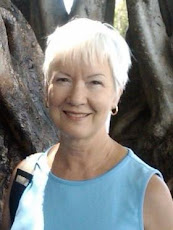

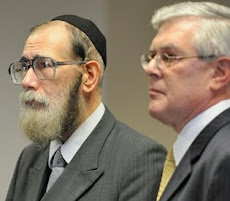

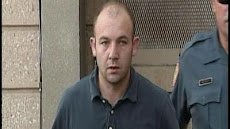









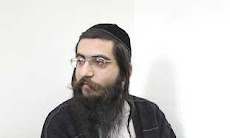





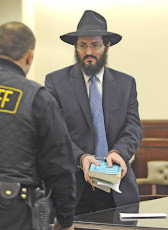














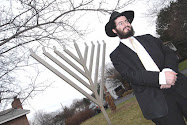




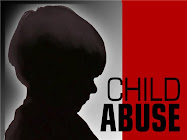













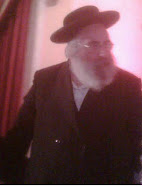



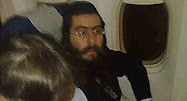




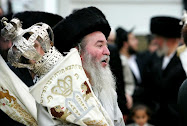


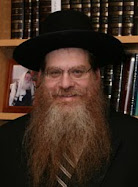












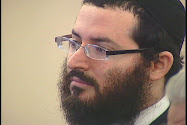
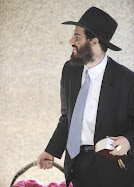
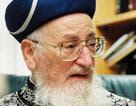









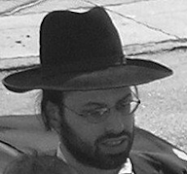

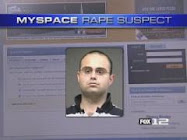









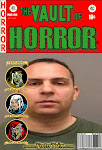












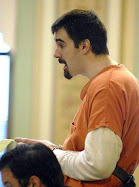


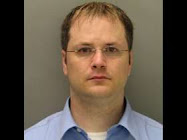


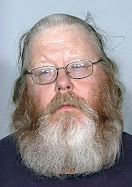

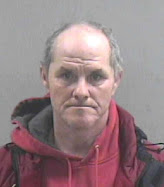
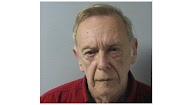
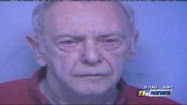













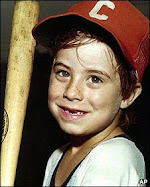

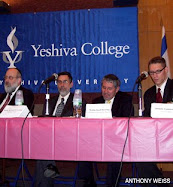







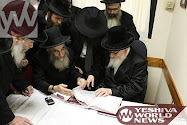









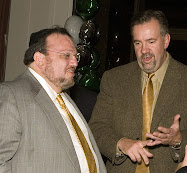
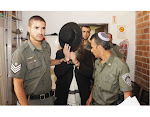



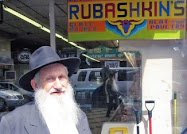















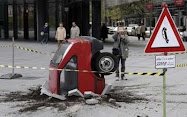










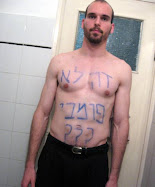
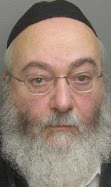












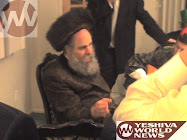






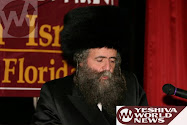


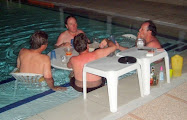

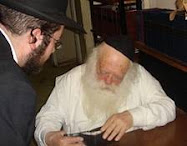

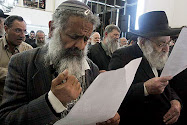
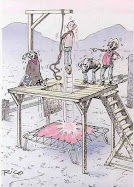




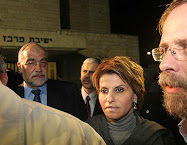
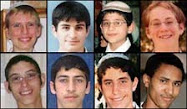
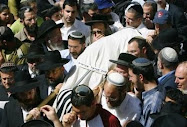
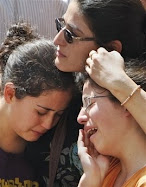
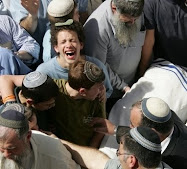
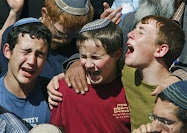
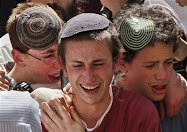
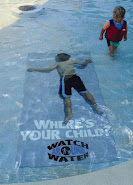









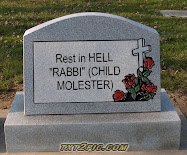
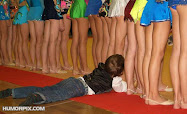







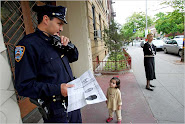















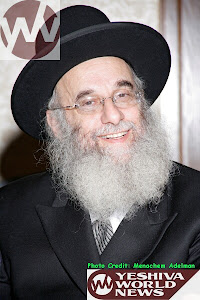


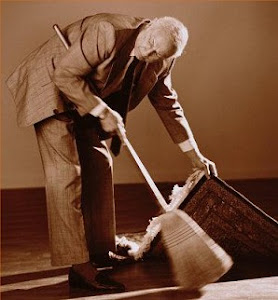








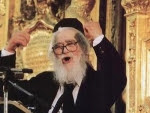
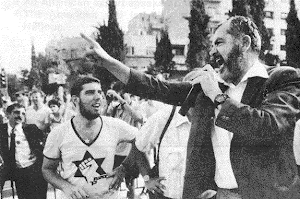

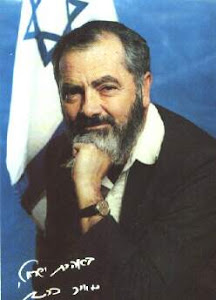

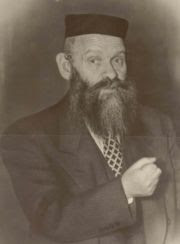




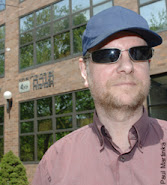


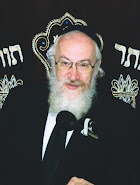





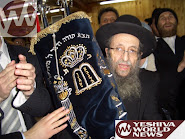



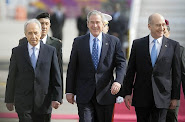
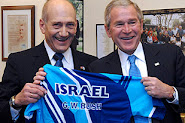
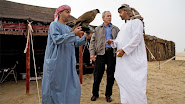


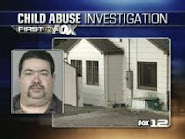
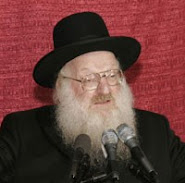

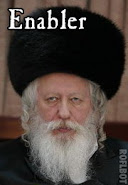



















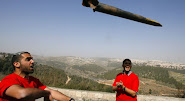
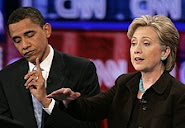


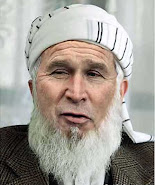









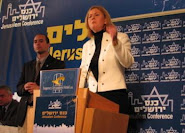


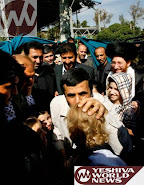
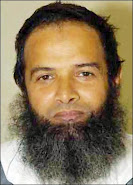


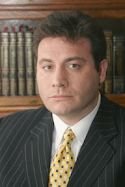


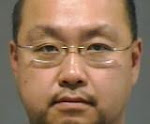
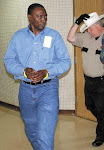

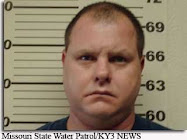



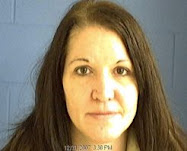


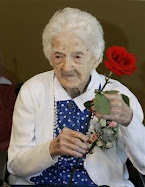

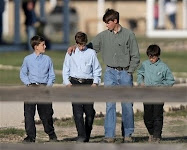



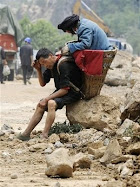



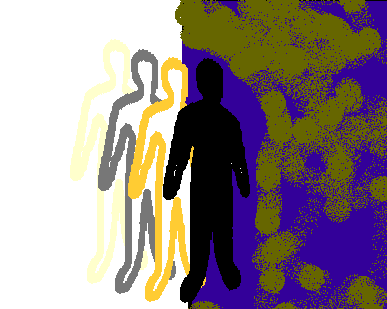

41 comments:
Safed's chief rabbi says Israelis should not buy Turkish products in light of country's hostility towards Israel during Gaza op
Hagai Einav
Safed's Chief Rabbi Shmuel Eliyahu called on Israelis on Monday to boycott dried fruits imported from Turkey, in response to the recent anti-Israeli flare-up in the country.
"This is our way to protest Turkish Prime Minister Erdogan's expressions of hostility towards President Shimon Peres at the Davos Forum, and the support they received from the Turkish people," Eliyahu told Ynet.
In recent weeks there has been a sharp drop in the number of Israelis travelling to Turkey, and the rabbi hopes that the touristic boycott would be accompanied by an economic one.
"While IDF soldiers were fighting and defending the state, Turkey opted to side with our greatest enemies and threaten our troops.
"I prefer to see the thousands of tons of dried fruits exported from Turkey remaining on the shelves, and Israelis buying the high quality fruits grown and sold by Israeli farmers, who at this difficult time may be able to enjoy some relief," he added.
Rabbi Eliyahu said he hoped that other rabbis would join his call and agree that this was more than just a gimmick.
However, a great number of Israeli importers recently came back from Turkey with large quantities of fried fruit ahead of the Tu B'Shvat holiday, and if the boycott initiative is successful they might have to destroy the goods.
Rabbi Eliyahu is known for his controversial statements regarding Israeli Arabs and the Muslim world and has already faced several investigations for incitement in the past.
Eco Rabbi: Tu Bishvat and the Receiving of the Torah
Each week Orthodox Jews read one segment of the Five Books of Moses so that they can complete the entire Five Books within the course of a year. In last week’s Eco-Rabbi [1] post we discussed water and life [2]. In this week I will discuss man, trees and the receiving of the Bible (Torah) on Mount Sinai.
Today week we celebrate Tu Bishvat, the new year for trees. According to tradition the trees are judged on this day. God decides which trees will continue to grow healthily and how much they each will produce. The day coincides with the beginning of the new season, when the first trees begin to bloom.
Interestingly, this week, in the parsha, segment of Bible read, we talk about the receiving of the Torah. Standing at the foot of Mount Sinai must have been an incredible experience! Moses was talking directly with God, just out of slavery. Miracles happening right before the Jewish people’s eyes!
Is there a connection between the receiving of the Torah and Tu Bishvat?
Our tradition is filled with trees and hold them in the highest regard. Back to the very beginning of the story, Adam and Eve were placed in Gan Eden with only one commandment. Do not eat from the Tree of Knowledge (again a tree). Before they got a chance to eat from the Tree of Life they broke this commandment and were sent away from the garden.
But all is not lost. The book of Proverbs teaches us that the Torah is a “Tree of Life” to all who hold onto it. The Torah, that we describe the receiving of in this week’s parsha is our opportunity to eat from the Tree of Life that Adam and eve did not get.
So the Torah is the Tree of Life and, as we discussed last week, is also water of life [3].
Man is also described as a tree [4]. In Deuteronomy (20:19) we are commanded not to cut down fruit trees during an offensive war because: “man is the fruit of the field.” We too are trees.
It is from that verse that we learn about the law that prohibits wasting, the prohibition of baal tashchit. This law is the source of what makes the environmental movement so important to the Jewish people.
If you are not allowed to waste, then naturally you should be careful to shut off lights when you are not using them, only use water when necessary. Even to make sure you drive responsibly and not waste gas.
All this comes out from the fact that we too are like trees. So there really is a strong connection between the giving of the Torah and Tu Bishvat.
This post is part 25 of 25 in the Eco-Rabbi [1] series.
Series Navigation«Eco-Rabbi: Parshat Beshalach - Water of Life [2]
Article printed from Green Prophet: http://greenprophet.com
URL to article: http://greenprophet.com/2009/02/09/6865/eco-rabbi-tu-bishvat-and-the-receiving-of-the-torah/
URLs in this post:
[1] Eco-Rabbi: http://greenprophet.com/series/eco-rabbi/
[2] water and life: http://greenprophet.com/2009/02/05/6519/eco-rabbi-parshat-beshalach-water-of-life/
[3] water of life: http://greenprophet.com/2009/02/05/6519/eco-rabbi-parshat-beshalach-water-of-life
[4] Man is also described as a tree: http://greenprophet.com/2008/01/20/98/eco-rabbi-man-the-tree-of-the-field/
I do not know much about Rabbi Noah Weinberg a'h, other than he was a fixture for Aish Hatorah and kiruv.
Does anybody know what his position was with respect to the whole child molestation issue in the orthodox community?
I hate Jews, but I am against Anti-Semitism.
-------------
soon after the attack on the synagogue, Venezuelan officials had ruled out any links between the synagogue attack and the diplomatic row with Israel. Venezuelan President Hugo Chavez had condemned the attack and had pledged to bring those responsible for the attack to justice.
by RTT Staff Writer
For comments and feedback: contact editorial@rttnews.com
To me, it does not make sense. I think 13,237 kids are lying.
--------------------------
http://www.guardian.co.uk/society/2009/feb/09/childline-sexual-abuse
A record number of children called the ChildLine helpline last year to report sexual abuse, the charity said today.
A total of 13,237 children called the helpline in 2007-08 saying they were victims of sexual abuse - more than a 50% increase over three years.
Storylines on TV programmes, including BBC soap EastEnders, and high-profile awareness campaigns have encouraged children to speak out about abuse, ChildLine said.
But the service said that despite having more volunteers and bases than ever, it was only able to answer two-thirds of the 2.3m calls it receives every year.
Esther Rantzen, ChildLine's founder and president, said: "There are many children whose cries for help cannot be answered because ChildLine simply does not have enough resources to answer every call.
"Our nightmare is the child who plucks up the courage to ring, fails to get through, and never dares try again. Imagine the distress of a child who cannot get through to a counsellor before she is raped again that night."
She said the service urgently needed to be expanded "so that every child's cry for help can be answered".
Sue Minto, head of ChildLine, said many child sex abuse victims had been "threatened or intimidated into silence" and some calls included "details of other extreme forms of abuse like being hit, tied up, threatened with their life and being plied with drugs".
She added that awareness campaigns and child sex abuse storylines on TV programmes like BBC soap EastEnders encouraged children to speak out.
"More children now understand what sexual abuse is and are increasingly willing to turn to ChildLine for help," she said.
The service counselled 13,237 children, including 465 children aged seven or under, for sexual abuse last year, more than at any time in its 22-year history. Almost 6,000 children said they had been raped.
The figure was up from 8,637 in 2004-05 - a 53% increase over three years. During the same period, the overall number of children counselled rose 26%. Most children counselled for sexual abuse - 61% (8,074) - were aged 12 to 15. Of the 13,237 children counselled for sexual abuse in 2007/08, the vast majority were abused by someone they knew.
ChildLine said 59% said they had been sexually abused by a family member, 29% said they had been sexually abused by someone else known to them and 4% said they had been sexually abused by a stranger.
A total of 8,457 were girls (64%) and 4,780 were boys (36%).
• ChildLine: 0800 1111, childline.org.uk
According to a report issued Sunday by the nongovernmental National Council for Children's Welfare, 67 percent of children aged 6-12 watch five or more hours of television a day. The report also found that more than half of the children who have an internet connection at home surf for over two hours a day.
Over 34.2 percent of children in Israel live below the poverty line. The main reason for welfare intervention is financial problems.
Reports of child abuse increased 67.3 percent between the years 1998 and 2007. Hospital medical staff in 2007 listed 2,281 children as victims of domestic abuse. This was a 14.7 percent rise, compared with the 1,989 children reported abused in 2000. Most cases of abuse involve negligence and physical violence.
From 1970 to 2007, the total child population doubled, but the number of Muslim children tripled. By the end of 2007, statistics show that 2,408,400 children were living in Israel, making up 33.2 percent of the general population -- amost exactly one third.
3 in 5 Kosher Food Buyers Purchase for Food Quality, Not Religion
Christians, Muslims, Jews and Atheists alike are helping fuel the robust market for kosher foods, according to a new report by market research firm Mintel. In a consumer survey of adults who purchase kosher food, Mintel found that the number one reason people buy kosher is for food quality (62%).
The second most common reason people say they purchase kosher food is “general healthfulness” (51%) and the third is food safety (34%). This contrasts sharply to the just 14% of respondents who say they purchase kosher food because they follow kosher religious rules. Another 10% buy kosher because they follow some other religious rules with eating restrictions similar to kosher.
“Kosher food has gained the reputation of being more carefully produced and thoroughly inspected than non-kosher food,” comments Marcia Mogelonsky, Ph. D, senior analyst at Mintel. “With recent food safety scares causing people to rethink even the most familiar food products, we can expect more adults to turn to kosher food as a way to ensure food safety and quality.”
The market for kosher food is strong and growing in the US, reports Mintel. Sales of kosher foods* totaled $12.5 billion in 2008, a 64% increase since 2003. Furthermore, Mintel’s recent survey of 2,500 adults revealed that 13% say they intentionally purchase kosher foods.
The Mintel Global New Products Database, which tracks new product launches, reports that over one in four (28%) new food and drink products launched in the US during 2008 bore a kosher symbol. Kosher has been the top individual claim on new food and drink in the US since 2005.
*Sales include kosher-certified prepared foods and kosher meat, dairy and fish. They do not include “intrinsically kosher” products like unprocessed fruits and vegetables.
Watch the video clip. This is really sad and pretty typical for many "Rabbis" that sweep under the rug.
___________________________________
http://www.haaretz.com/hasen/spages/976044.html
Rabbi under house arrest after 18 years worth of sex charges
http://www.youtube.com/watch?v=DvtKVbU8xys
Short video by Rabbi Noah Weinberg, teaching the 4th of the 6 constant mitzvot. Produced by JewishPathways.com, the more advanced learning site of Aish.com, offering self-paced, online courses in ...
Short video by Rabbi Noah Weinberg, teaching the 4th of the 6 constant mitzvot.
Produced by JewishPathways.com, the more advanced learning site of Aish.com, offering self-paced, online courses in Jewish thought and observance.
Visit us at http://www.JewishPathways.com
Category: Education
Tags:
God Mitzvah mitzva mitzvot mitzvos commandment constant Jew Jewish Judaism Rabbi Noah Weinberg
The Ger Hassidic sect, under the aggressive leadership of Rabbi Ya'acov Aryeh Alter, is attempting to increase its influence over the educational system, which is a source of thousands of jobs for teachers.
JERUSALEM – Israeli officials say the polls are open for the general election that pits former Prime Minister Benjamin Netanyahu and his Likud Party against Foreign Minister Tzipi Livni and her Kadima Party.
Most of the country's 9,263 polling stations opened as scheduled at 7 a.m. (0500 GMT, 12 a.m. EST ). Polls are open in all but the smallest communities until 10 p.m. (2000 GMT, 3 p.m. EST).
For months, opinion polls have predicted a decisive victory by Netanyahu's Likud Party. But new polls released over the weekend showed Kadima closing the gap. Neither is expected to get more than 30 seats in the 120-seat parliament, however, meaning the winner will likely have to form a coalition with smaller parties.
newsday.com/news/local/nassau/ny-litala106030539feb10,0,4458784.story
Newsday.com
Talansky faces assault charge against dentist
BY ALFONSO A. CASTILLO
alfonso.castillo@newsday.com
February 10, 2009
Morris Talansky's role in a political corruption scandal may have resulted in the resignation of Israel's prime minister, but it has nothing to do with the charges he faces in Nassau County, a District Court judge ruled as the Woodmere businessman's misdemeanor assault trial began yesterday in Hempstead.
Talansky, 75, an ordained Orthodox rabbi, is charged with third-degree assault in the August 2007 assault, in which his dentist, Leonard Barashick, said Talansky violently attacked him during an argument over dental bridgework..
"Does anybody know what his position was with respect to the whole child molestation issue in the orthodox community?"
======================================
I genuinely hope there are no A-Rod (A-Fraud) surprises here, but if there are - speak up and DO NOT REMAIN SILENT!
Israelis braved lashing hail and high winds today to cast their ballots in a crucial general election expected to shift the sharply country to the right and dim Palestinian hopes for a state of their own.
But with so many eligible voters uninspired by the leadership on offer, and still undecided even as they headed into polling stations, party heads were out urging their constituents to turn out in what looked set to be a neck-and-neck race to the finishing line.
Turnout was up slightly from the last elections three years ago, hitting 42 per cent of the 5.2 million eligible voters by 4pm, despite the inclement weather. Kadima, the governing centrist party which is expected to be pipped at the post by the right-wing Likud, said it had bought 10,000 umbrellas to ensure that its supporters made the effort to cast their ballots.
Tzipi Livni, the Kadima party leader and outgoing Foreign Minister who has led fruitless peace talks with the Palestinians, urged supporters to get out as she voted in Tel Aviv, saying that "the most important thing is not to lose hope."
Final pre-election polls showed that Likud was leading Kadima by just two seats in the 120-member assembly, making the final results too close to call. The results were a marked contrast to surveys conducted during the recent Gaza war, when security-conscious Israelis turned to the tough-talking Likud leader, Binyamin Netanyahu, in large numbers.
Since then, however, Mr Netanyahu’s lead has been eaten away by the even more outspoken right-winger Avigdor Lieberman, the Moldovan-born head of the nationalist Yisrael Beitenu (Israel - Our Home) party, who advocates land swaps to ethnically homogenise Israel and keep sovereignty of large Jewish settlements in the West Bank.
Mr Lieberman has made a name for himself as a bluff and unflinching character, popular with the right-wing youth of Israel who have grown disillusioned with endless peace talks that have failed to solve the decades-old conflict.
"We want change, someone strong," said Ephat Sarig, a 40-year-old teacher voting today at Maale Adumim, a large Jerusalem suburb built on land conquered in the 1967 war. "Lieberman is not an extremist, that’s all just politics," she said, discounting his past comments that Israel should bomb Palestinian commercial centres in response to attacks on its own cities.
"The best government would be a completely right-wing one," said Daniel, a 22-year-old soldier fresh back from fighting in Gaza. Even as he walked into the polling booth, however, he was undecided about whether he wanted "Bibi", as Mr Netanyahu is popularly known, or Mr Lieberman, both of whom said the campaign against Hamas finished too early, before the Islamists were wiped out. "The biggest danger to Israel is the leftists," Daniel said.
However, many voters questioned by The Times today though Mr Lieberman was too extreme, with many on the right preferring to opt for Likud instead.
Felix Tamus, a 44-year-old construction programme manager voting in the central Jerusalem district of Nahlaot, said he expected a right-dominated coalition to emerge, even though he himself voted for the dovish left-wing Meretz party.
"Bibi has a really right-wing agenda," he said. “It means that this country is very right-wing, and people think that power is the answer."
He doubted that any coalition emerging from Israel's deeply divided political landscape would last its full four-year term. "Then maybe people will wake and see that power is not the answer," he said.
Mr Lieberman’s hard line on Arabs and Iran – which he has threatened to attack – have won him many backers, lending his party as many as 20 seats. Many, however, want to see him in a secondary role - providing a muscular, menacing presence behind whoever emerges as Prime Minister.
"I’m voting for Tzipi Livni, she’s the best," said 57-year-old Itzik Yakubovitch, a Jerusalem hotel owner desperate to end the violence that has eroded the tourist trade. "Lieberman is good, but not a prime minister. I want Lieberman together with Livni. She’s a lady she needs someone strong behind her, so the Arabs will be intimidated."
http://www.youtube.com/watch?v=KDYeDDim-ok
Election too close to call in Israel
February 10, 2009
The vote count is underway in Israel as the country prepares the way for a new Prime Minister. Two main candidates are vying for the position and each has a different approach to the issue of national security.
From Wikipedia, the free encyclopedia
Jump to: navigation, search
Avigdor Lieberman
Date of birth 5 June 1958 (1958-06-05) (age 50)
Place of birth Kishinev, Soviet Union (now Moldova)
Year of Aliyah 1978
Knesset(s) 15th, 16th, 17th (current)
Party Yisrael Beiteinu
Former parties National Union
Gov't roles
(current in bold) Deputy Prime Minister
Minister of Strategic Affairs
Minister of Transportation
Minister of National Infrastructure
Avigdor Lieberman (Hebrew: אביגדור ליברמן Avigdor lieberman.ogg (audio) (help·info), born Evet Lvovich Liberman (Russian: Эве́т Льво́вич Ли́берман) on 5 June 1958[1]) is an Israeli politician and leader of the Yisrael Beiteinu party. A broad spectrum of mainstream media sources within and without Israel label Lieberman and his party, Yisrael Beiteinu, as extreme right[2][3], far right[4][5], hard right[6], or radical right[7]. They also characterize Lieberman and his party as hardline[8][9], populist[10][11], or ultra nationalist[12][13][14].
In October 2006, Lieberman and Prime Minister Ehud Olmert signed a coalition agreement. Under the agreement, Lieberman became the Deputy Prime Minister and Minister of Strategic Affairs, a new position with a focus towards the strategic threat from Iran.[15] However, he left the cabinet when Yisrael Beiteinu resigned from the coalition in January 2008. A polarizing figure within Israeli politics, Lieberman is quoted as saying, "I've always been controversial because I offer new ideas. For me to be controversial, I think this is positive."[16]
Samuel Israel III began life as the scion of a New Orleans family and ended up the perpetrator of one of Wall Street’s biggest recent frauds, the 2005 collapse of his Bayou hedge fund, and of a failed attempt to escape prison by faking his own suicide.
Older Wall Street types still remember Mr. Israel’s grandfather and namesake, Samuel Israel, who built what had been founded as a family company into ACLI International, a commodity trading powerhouse. It was sold to the firm of Donaldson, Lufkin & Jenrette for $42 million in 1981.
In a pre-sentencing letter to the judge in his case, Mr. Israel wrote that the pressure to live up to his family’s legacy was a reason for the fraud. “Ever since I can remember, I met people everywhere that have told me they know my family either directly or by reputation,” he wrote. “I cheated my investors because I was afraid to admit my failure. I did not want the world to think I was not good enough and I did not want my family to see me as a failure.”
Read More...
http://topics.nytimes.com/top/reference/timestopics/people/i/samuel_israel_iii/index.html?inline=nyt-per
DEBKAfile - We start where the media stop
Kadima's lead over Likud shrinks to one place, spelling unstable government
DEBKAfile Special Report
February 11, 2009, 11:10 AM (GMT+02:00)
Nearly 100 percent of counted votes from Israel's general election Tuesday, Feb. 10, awards Tzipi Livni's Kadima 28 Knesset seats (out of 120) – only one place ahead of the 27 polled by Binyamin Netanyahu's Likud. He heads a right-of-center bloc of 64 seats to the 56 polled by the center and left. This means Livni cannot form a government without Likud and defense minister Ehud Barak's Labor (13), unless her scant win is solidified by the still uncounted military votes.
Avigdor Lieberman's right-wing Israel Beitenu came in third with 15, pushing Labor, the state's founding party, down to fourth place. The ultra-religious Shas polled 11 seats, Torah Judaism 5 and New Left Meretz crashed to 3 on a par with Bayit Yehudi, National Union.
The military vote is expected to boost the right-wing Israel Beitenu and Likud. While the former has made a spectacular showing, neither Kadima nor Likud has garnered enough of the vote to promise Israel stable government for a full four-year term with parliamentary support for new policies.
The Arab Israeli parties Raam-Taal polled 5 seats, Hadash (communists) 4 and Balad three.
Livni has invited Likud to join a broad national unity government, while Netanyahu is bidding for a narrow, right-wing government and trying to co-opt Labor and Kadima later.
Lieberman, who holds the balance, says his party will decide which way to go in the coming days. He favors a right-wing national government but rules out a partnership with Shas whose leader vilified his party.
If Livni, 50, does manage to horse-trade her way to forming a coalition government, she will be Israel's second woman prime minister after Golda Meir.
Foreign minister in the outgoing administration, a lawyer, former justice minister and Mossad staffer, Livni is untested in the two dominant popular concerns, security and the failing economy. An advocate of peace talks, she is generally considered a naïve negotiator and over-influenced by foreign colleagues and international opinion. Her campaign was a highly personal one, which kept her unimpressive list of candidates well in the wings.
Lieberman's Israel Beitenu cut deep into Netanyahu's right-of-center Likud and the religious parties, in the same way as Livni's relatively new Kadima sliced chunks off the traditional constituencies of defense minister Ehud Barak's Labor and the left-wing Meretz.
Netanyahu, 59, lost his early margin as frontrunner by miscalculating the strength of his rivals. Unlike Livni, he refrained from throwing himself into the rough and tumble with the grass-roots voter and relied on the Internet to carry his message. The deal he cut early on with the unpopular Barak boomeranged against Likud.
Netanyahu and Barak are both former prime ministers. Netanyahu known as Bibi, campaigned on a clear ticket: No nuclear arms for Iran, no repartition of Jerusalem, no concession of the Golan and an end to Hamas rule of Gaza.
His term as prime minister from 1996 to 1999 ended with his defeat by Labor Party leader Ehud Barak, a former chief of staff and foreign minister.
As finance minister from 2001-2005 under Ariel Sharon, Netanyahu is credited with turning around the economy, blighted by the Palestinian uprising, and fostering years of dramatic growth.
Lieberman, 50, who was born in Moldova, founded his party with the support of former Russian immigrants but also won strong backing in this campaign from young soldiers across the board with his strong security message and slogan: "Lieberman understands Arabic!" One condition for his joining a government is a commitment to end Hamas rule of the Gaza Strip once and for all and zero tolerance for terrorists.
Another Jew hater gets world recognition, and he is referred to as a 'moderate' by the media.
..............
Abbas will restart talks only if Israel commits to a settlement freeze, his aides said Tuesday, posing such a condition for the first time.
"We now have clear conditions for whoever heads the Israeli government," said Rafiq Husseini, an Abbas adviser. "The conditions begin with the halt of settlement activities immediately."
Rabbi not guilty in Long Beach dentist's assault
BY ALFONSO A. CASTILLO | alfonso.castillo@newsday.com
February 11, 2009
Morris Talansky, the Woodmere businessman who was at the center of a corruption scandal that brought down the Israeli government last year, was found not guilty of assaulting his 85-year-old Long Beach dentist in a fight over dental bridgework.
After a two-day nonjury trial in District Court in Hempstead, Judge William O'Brien ruled yesterday that prosecutors had not met their burden in proving that Talansky, 76 - an ordained orthodox rabbi - attacked Dr. Leonard Barashick at a Baldwin dental lab in 2007.
O'Brien said he did not find Barashick's testimony credible.
"I'm grateful to the almighty and to my defense attorneys," Talansky said as he left the courtroom. Outside the building he wept as he embraced his attorneys, Anthony Colleluori of Woodbury and Ralph Bontempo of Albertson. "It's over. It's over," he told them.
My only comment is I agree with just one statement.
My favourite item of clothing ... is a Borsalino hat, splendid for all occasions, at home and abroad.
------------------------------------
The house I grew up in ... was full of people – my parents and seven children, which instilled in me a desire to leave.
When I was a child I wanted to be ... a doctor of tropical medicine.
The moment that changed me for ever ... was the moment my first child was born. I was happy, filled with hope, and thought, "Now I understand the whole point of work, of life, of love".
My greatest inspiration ... is memory.
My real-life villain ... is anyone who says, "That murder was necessary".
My style icon ... Yvon Chouinard, surfer, mountain-climber, businessman, philanthropist and [as the founder of the Patagonia label] maker of sturdy clothing.
If I could change one thing about myself ... I would find a way of ridding myself of gout.
At night I dream of ... flying like a frigate bird, on the up-flows of wind currents, hardly moving my arms, but often soaring to considerable heights.
What I see when I look in the mirror ... is an unfamiliar face.
My favourite item of clothing ... is a Borsalino hat, splendid for all occasions, at home and abroad.
I wish I'd never worn ... bell bottoms in the 1970s.
It's not fashionable but I like ... to spit out of the window of a moving train.
You wouldn't know it but I'm very good at ... growing and propagating non-invasive types of bamboo.
You may not know it but I'm no good at ... coping with all the attention in the luxury hotels I sometimes find myself in.
All my money goes on ... supporting myself while I am trying to think of an idea that will make me some money.
If I have time to myself ... I sit on a sunny beach, eating ice-cream and pondering the narcissism of minor differences in the world.
I ride ... a Merlin titanium hybrid bike up many volcanic ridges in Hawaii.
My house is ... a place I have spent many years improving to the point where I have no desire to leave it.
My most valuable possession is ... a small leather briefcase (made by Glaser Designs in San Francisco) which is my portable office, containing a clipboard, a pad of white lined paper, a tiny radio and earphones, and a selection of pens and other items necessary to write on the road or under a palm tree.
My favourite building is ... Victoria Station (now called Chhatrapati Shivaji Terminus) in Bombay (Mumbai).
Movie heaven is ... The Godfather.
A book that changed me ... was The Worst Journey in the World, by Apsley Cherry-Garrard – a magnificent book about a harrowing trip, written brilliantly by a modest and obscure man.
My favourite work of art ... is the Bayon temple at the centre of Angkor Thom, in Cambodia.
The last album I bought ... was Monsters of Grace by Philip Glass.
The person who really makes me laugh ... is any politician who starts a speech, "What we really need to do now is tighten our belts ..."
The shops I can't walk past ... are those in the heart of England (Ludlow comes to mind) filled with different kinds of cheese.
The best invention ever ... is the twist-off beer bottle cap.
In 10 years' time I hope to be ... having a couple of adorable little children, sort of like Rupert Murdoch did in his seventies. Ha! Just joking. All I want is to still be here 10 years' hence.
My greatest regret ... is that I did not go to medical school when I still had an agile-enough brain to do so.
My life in seven words ... joyous, bewildering, rewarded, secretive, familial, passionate, American.
A life in brief
Paul Theroux was born on 10 April 1941 in Medford, Massachusetts, and worked as a Peace Corps teacher in Malawi before taking up writing. Among his most famous works are the novel Mosquito Coast, which was made into a Hollywood film, and the travel book The Great Railway Bazaar. He is also a professional beekeeper and lives with his second wife in Cape Cod and Hawaii. Paul Theroux's latest book is Ghost Train to the Eastern Star (published by Hamish Hamilton)
http://www.independent.co.uk/news/people/profiles/my-secret-life-paul-theroux-travel-writer-67-1545871.html
Rav Weinberg, Zatzal, was truly one of the nicest people you could have ever met.
"And Yitro said, 'Blessed is the Lord who has saved you from the hand of Egypt and from the hand of Pharaoh...'" (Ex. 18:9-11)
The Biblical portion which initially records the Divine Revelation to Israel at Sinai - the Ten Commandments which serve as the foundation stone of our faith and our morality - opens with praise from, and is actually named after, a Midianite Priest, Yitro. This very same Yitro goes on to teach Moses how to establish a proper judicial system.
Given this intimate relationship between Yitro and Moses, one arrives at the inevitable conclusion that the Bible wants to teach us as clearly and powerfully as possible that its message of freedom from enslavement, its unmitigated demand for the absolute morality of "...thou shalt not murder, thou shalt not steal, thou shalt not commit adultery..." and its trail-blazing teaching of ethical monotheism was meant not only for Israel but for the entire world.
There is a fascinating debate among the Talmudic sages as to whether or not Yitro actually converted to Judaism. After all, the Bible does tell us that after voicing his admiration and giving his advice, Yitro returns to his home in Midian (Ex. 18:27). Later on in the Biblical narrative (Numbers 10: 29-32), his departure is described in greater detail, with Moses urging his father-in-law to remain with the Israelites, promising him proper respect and reward (according to the Ramban, even land in Israel). However Yitro demurs, choosing to return to "...his land and his birthplace."
US and Russian communications satellites have collided in space in the first such reported mishap.
A satellite owned by the US company Iridium hit a defunct Russian satellite at high speed nearly 780km (485 miles) over Siberia on Tuesday, Nasa said.
The risk to the International Space Station and a shuttle launch planned for later this month is said to be low.
The impact produced a massive cloud of debris, and the magnitude of the crash is not expected to be clear for weeks.
The reportedly non-operational Russian satellite, weighing 950kg (2,094lb), had been launched in 1993, while the Iridium satellite weighed 560 kg and was launched in 1997.
When two such objects collide with such force, the ensuing debris can destroy other satellites, says the BBC's Andy Gallacher in Florida.
But Nasa said the risk to the ISS and its three astronauts was low as the station orbits the earth some 435km below the course of the collision.
It is hoped that most of the wreckage from the collision will burn up in the earth's atmosphere, our correspondent says.
Hundreds of pieces of wreckage are now being tracked, reports say, adding to the tens of thousands of objects that are routinely tracked through space.
Some 6,000 satellites have been sent into orbit since 1957.
Story from BBC NEWS:
http://news.bbc.co.uk/go/pr/fr/-/2/hi/science/nature/7885051.stm
Published: 2009/02/12 04:58:19 GMT
"Whoever's in charge of the next government, the question everybody is asking, is 'How are they going to deal with Barack Obama?'" says Mitchell Barak, a former adviser to Mr. Netanyahu.
------------------------------
That is correct. You have to check with me first and see if we approve of Israel's behavior.
By FRANCES KRAFT, Staff Reporter
Thursday, 12 February 2009
TORONTO — When religiously observant girls learn to dress modestly to avoid tempting “boys who have no control over their animal behaviour,” and they end up being sexually abused, they may feel partially responsible, according to Judy Klitsner, one of three speakers at a recent Torah in Motion event.
The Jan. 15 panel discussion at Shaarei Shomayim Congregation addressed “Keeping Our Children Safe: What Families and Communities Can Do.” A senior lecturer at the Pardes Institute of Jewish Studies, Klitsner has written in the New York Jewish Week about being abused as a teenager by Rabbi Baruch Lanner when he headed the National Conference of Synagogue Youth.
Modesty, or tzniut, applies to vocabulary as much as to skirt length, said Michelle Friedman, a New York psychiatrist and assistant professor of psychiatry who also teaches pastoral counseling to rabbinical students at Yeshivat Chovevei Torah.
“If girls don’t even know some of the terms for their own body parts, you feel like you’re not supposed to know those words and you’re not supposed to talk about it.”
Rabbi Mark Dratch, founder of West Hempstead, N.Y.-based Jsafe: The Jewish Institute Supporting an Abuse-Free Environment and a former spiritual leader of Shaarei Shomayim, was unequivocal in urging people to talk about sexual abuse and report it after it has occurred.
“Let it be said very clearly, when there’s a positive purpose for which the information is shared, it’s not prohibited speech. It’s mandated speech.”
In the Orthodox community, victims of sexual abuse are often concerned that if it becomes known that there has been abuse in the family, there will be a negative impact on shidduchim (marriage matches), Rabbi Dratch said.
“I would much rather have my child marry someone who had dealt with abuse in a responsible way than have dysfunction because abuse was not dealt with. I hope I’m not in the minority.”
Silence is the oxygen of abuse, Klitsner stressed.
When she was 16, Rabbi Lanner attempted to strangle her after she rebuffed his advances and threatened to report him, she said.
In 2002, the New York Jewish Week reported that Rabbi Lanner had been sentenced to seven years in prison for sexually abusing two teenage girls in the early 1990s.
Klitsner didn’t tell anyone what had happened to her, she said. “I was convinced that [Rabbi Lanner] was the king, and in his kingdom, everybody played by his rules.”
She said she feared confronting him and feared that he was capable of doing or saying anything, and she also felt confused and guilty.
“My father was ill. My mother was busy with that, and [Rabbi Lanner] counted on the fact that I wouldn’t want to involve them.”
The worst part of abuse by a spiritual leader is the psychological and spiritual component, Klitsner said. “I’ve seen it in every denomination of Judaism, and in every branch of Orthodoxy. It’s not worse in Orthodoxy, but it’s not better, either.”
The overwhelming majority of abuse accusations are true, Rabbi Dratch said.
But Klitsner said that rabbis often protect an abusive colleague, rationalizing that he “must have done tshuvah,” that “some 14-year-olds are very mature,” or saying, “Look at all the good he does… We can’t afford to lose him.’
“I hope it’s obvious this is unacceptable,” she said.
Even worse, Klitsner added, is the attitude that if there was no physical assault, then “nothing happened.”
The rabbi believes the rate of sexual abuse in the Jewish community is no different than it is in the larger community. He said that in the United States, one of every three or four women has been a victim of such abuse in her lifetime.
He said he would not want to ban physical touch between teachers and students of the same gender, as long as it is responsible and appropriate.
“When a student feels uncomfortable, it is clearly inappropriate.” Also, he added, any touching “needs to be in public” with other people around.
He also suggested, as a matter of protocol, that rabbis and teachers should never be alone with a child.
Instead of a windowless office for a rabbi, Rabbi Dratch suggested that a window with a screen would provide confidentiality and be “in everybody’s interest.”
Friedman said it’s important to teach children to tell a trusted adult if touching feels uncomfortable.
“Somebody can touch your cheek in a way that feels uncomfortable,” she noted, adding that a hug can sometimes feel right.
http://www.cjnews.com/index.php?option=com_content&task=view&id=16244&Itemid=86
Child abuse is acceptable to us providing it is done leshem shomayim..
_________________________________
newsday.com/news/local/crime/ny-licps116032429feb12,0,4175893.story
Newsday.com
Officials report record number of child abuse cases
BY MICHAEL AMON
michael.amon@newsday.com
February 12, 2009
A record number of child abuse and neglect cases were reported on Long Island and across New York state last year, child welfare officials said yesterday.
Child Protective Services conducted 9 percent more probes last year in Nassau, up to 7,193 from 6,621 in 2007, and 8 percent more in Suffolk, up to 9,538 from 8,847 in 2007. Statewide, abuse and neglect reports rose 7 percent, officials said.
Child welfare officials disagreed on what drove the spike. Nassau blamed the recession, Suffolk cited a statute that broadened who is required by law to report abuse, and the state said the flood of calls came mostly from a series of high-profile child deaths - including, in Nassau, a mother, Leatrice Brewer, who killed her three children.
Most officials cautioned the numbers did not necessarily mean more or worse child abuse took place last year but the additional cases means much more work for 150 caseworkers in Nassau and Suffolk.
"It's put a lot of stress on the child welfare system," said Laura Velez, deputy commissioner for child welfare and community services of the New York State Office of Children and Family Services.
The percentage of allegations where investigators found credible evidence of child abuse or neglect in both counties remained roughly the same from 2007 to 2008 - 27 percent in Nassau and 31 percent in Suffolk.
Nassau and Suffolk police said there were not more criminal cases of abuse last year.
Child-welfare experts said caseworkers with high workloads can miss signs of abuse and neglect. Without mentioning workloads, a state report released this week on the Brewer case said the woman's parenting problems were repeatedly given too low a priority by caseworkers.
"Now, the system is far more overloaded, so the chances of the same thing happening again are greater than ever," said Richard Wexler, executive director of the National Coalition for Child Protection Reform in Alexandria, Va., referring to the Brewer case.
Theo Liebmann, director of the Child Advocacy Center at Hofstra University Law School, said heavy workloads have taken a toll on workers dealing with children he represents. "What you mostly see are caseworkers who are so overwhelmed that they can't follow up on referrals they give to families," Liebmann said.
Long Island agencies say they've hired new caseworkers - about 30 in Nassau and three in Suffolk - and shifted around staff to cope with the spike.
"If way down the road we still see massive increases in our numbers, we may have to re-evaluate our staffing patterns. Right now we're managing," said John Imhof, commissioner of the Nassau Department of Social Services.
Suffolk and Nassau officials said caseloads were between 15 and 18 per caseworker per month. The state recommends an average of 12 to 15 a month. Union officials say county numbers don't reflect the workload of the busiest workers who have more than 30 cases a month.
Neglect and abuse tips can be called into a state hotline by anyone but most come from professionals such as social workers and police who are mandated by state law to report abuse and neglect. Imhof said his caseworkers were seeing more children abused by parents out of work, a "warning sign" of the recession's effects.
"The worsening economy is placing great stress on the county's families," Imhof said.
To Suffolk officials, the deluge of reports was actually prompted by an Oct. 1, 2007, state law change requiring teachers, nurses and doctors to personally report suspected abuse or neglect. Previously, they had to tell their institution's social worker.
Dennis Nowak, a Suffolk Department of Social Services spokesman, said reports from school and medical personnel accounted for the county's increase, shooting up 30.7 percent and 18 percent, respectively. Those reports also tend to be more reliable than calls from neighbors and family because they are trained to look for signs of abuse, Nowak said.
Velez said the spike in calls statewide last year was due to counties with high-profile child deaths. "The public tends to have a heightened awareness when people see these issues talked about in the media."
INCREASE IN REPORTS
Social services officials said three factors are driving a big increase in reports of abuse and neglect to the state's child abuse hotline:
THE RECESSION. Tough times are causing more stress in families across Long Island.
PUBLICITY. Increased public awareness of abuse and neglect after the Leatrice Brewer murder case.
LEGISLATION. A state law that went into effect last year increasing the number of people who are required by statute to report abuse or neglect.
To report child abuse, call the state Office of Children and Family Services hotline, 800-342-3720.
Number of reports of abuse or neglect investigated by Child Protective Services in 2008, compared to 2007:
NASSAU
Up 9%, to 7,193
SUFFOLK
Up 8%, to 8,847
Six Miracle Cancer Survivors
Robert Langreth
An experimental drug helped Sharon Belvin, who was diagnosed with melanoma in her lung when she was 22 and spent two years in standard treatment. The drug is called ipilimumab, and it aims to trigger the immune system against cancer.
Within four months, her lung tumors started to shrivel. By late 2006, they were gone. Today Belvin, now 27, is off all treatment. She spends her time with her husband and 1-year-old daughter, Lilly Elizabeth, whom she calls "a miracle baby, after all we have been through."
Why do some patients beat the odds? Some go on experimental medicines that help them, but few others. Others take novel combinations of approved drugs that are too toxic for most to endure. The most mysterious cases of all are so-called spontaneous remissions, where tumors vanish without any treatment. Only a handful of such cases are reported in the medical literature each year.
In Pictures: Six Miracle Cancer Survivors
Each year, 566,000 Americans die of cancer. In 2004, cancer treatments cost $72 billion, according to the most recent National Cancer Institute report. And by all accounts, they have since soared.
That some patients respond better to certain drugs than others is a focus of furious scrutiny at top labs. The reasons include everything from the immune system, to the particular mutations in a given tumor, to the sensitivity of stem cells inside a tumor to treatment.
To me, it does not make sense that this could actually be the real findings. I think everyone of these kids has a wild imagination. We all know Rabbonim are holy people. Even if on the inside we believe they committed sexual offenses against children that does not give us the right to take away their parnassa, dignity and pride. We must deny and sweep under the rug as much as we can.
----------------------------
One in three girls and one in seven boys under the age of 18 are victims of sexual abuse, according to the FBI. But statistics also show that 88 percent of the time sexual abuse is never reported.
This is a problem for both victims and advocates who hope the system will continue to evolve with resources available to victims of sexual abuse. That’s where the Sexual Violence Center serving Scott, Carver and Hennepin counties steps in to support the victims of sexual abuse, as well as the victim’s family and friends.
The center serves people over age 12 regardless of sex, race and sexual orientation, said Kathy Robinson, a program manager for the Sexual Violence Center, which also offers community education in hopes of preventing sex abuse by taking programs on the road to schools and anywhere that will take speakers.
The center serves people who want to utilize the 24-hour crisis line, advocacy, counseling, support groups and legal services. The bottom line is, “Victims are given the absolute choice in all the decisions that are made throughout the process,” Robinson said.
The victim-centered group is available to answer questions at any point of the crisis whether that be sitting in on police interviews, being there for support during a sexual assault exam at the hospital, finding a safe place to live following the abuse, giving case consultation or talking about past assaults, said Macushla Kelly, one of the center’s advocates.
“We are here to give the victim a voice,” she said. “There are a lot of choices as to how far a victim wants to take a case along the process.”
The advocates never tell a parent or therapist what is said in counseling sessions, Robinson said. “It is crucial to a victim that confidentiality is supreme,” she said.
Acquaintance rape
Statistics show 90 percent of criminal sexual conduct is done by a person known to the victim, something parents need to talk with children about, Robinson said. Sexual violence is about power and control, not an act of sexual gratification, she said.
Anyone can be a victim of sexual abuse and perpetrators can be anyone from a family member to a coach, clergy, doctors or teachers, Robinson said.
“That is what makes sexual abuse so scary,” she said. “You just never know.”
When talking about acquaintance rape, also known as date rape, issues of consent must be at the forefront of any discussion, Robinson said. Permission is the biggest thing.
dis iz vy i beshum ofyfen vill nisht fly on a small airplain. Ah groiseh one could hold my veight but not ven it vus so vindy like yesteeday.
-
Sept. 11 widow killed in Buffalo plane crash
By DEVLIN BARRETT, Associated Press Writer Devlin Barrett, Associated Press Writer 49 mins ago
WASHINGTON – One of the victims of the Buffalo commuter plane crash, Beverly Eckert, was a Sept. 11 widow who put her never-ending grief to good use to make the country safer.
President Barack Obama, speaking in the White House's East Room, said Eckert "was an inspiration to me and to so many others, and I pray that her family finds peace and comfort in the hard days ahead."
A week before her death, Eckert met with Obama at the White House as part of a group of 9/11 families and relatives of those killed in the bombing of the USS Cole, discussing how the new administration would handle terror suspects.
Eckert was flying to Buffalo Thursday night to celebrate what would have been her husband Sean Rooney's 58th birthday.
When he died in the World Trade Center, she became one of the most visible, tearful faces in the aftermath of the terror attacks.
Carol Ashley, whose daughter died at the World Trade Center, said the grim details of Eckert's death are particularly painful to Eckert's friends among 9/11 families.
"The fact that it was a plane crash, it was fire, it was reminiscent of 9/11 that way, that's just very difficult," said Ashley, a retired schoolteacher from Long Island.
She carried that grief to Congress as she tried to make the government do a better job protecting its citizens from terrorism.
Her husband worked at Aon Corp., a risk management firm, at the 98th floor of the south tower.
Eckert would cry when she told the story about how her husband — who was her high school sweetheart — called her on the morning of the attacks, and told her he loved her just before there was a loud explosion and nothing more.
She became part of a small group of Sept. 11 widows, mothers, and children who became amateur lobbyists, ultimately forcing lawmakers in 2004 to pass sweeping reforms of the U.S. intelligence apparatus.
They spent months walking the halls of Congress. All of the women were grieving, but Eckert seemed unable or uninterested in holding back her tears.
When it was over and they'd won passage of the intelligence reform law, Eckert vowed to quit her high-profile role "cold turkey." All she wanted, she said, was to go home, buy groceries, and return to something like a regular life.
"I did all of this for Sean's memory, I did it for him," she said, crying again. "There is a euphoria in knowing that we reached the top of the hill. ... I just wanted Sean to come home from work. Maybe now, someone else's Sean will get to come home."
Eckert was flying to her hometown Thursday night when the plane crashed on approach to the Buffalo airport.
After the 2001 attacks, she co-chaired the 9/11 Family Steering Committee, a group of activists devoted to exposing government failures that led up to the 2001 attacks, and fixing them.
She pushed for a 9/11 Commission. She pushed the Bush administration to provide more information to the commission. And when the commission's work was over, she pushed Congress to adopt their recommendations.
For Eckert, the public role was not easy.
One night after a long day at Congress, she found herself in the New York City train station, without a connecting train to her home in Stamford, Connecticut.
"We slept in the train station. We had no place else to go. That's when you look at yourself and say, 'What am I doing? How can we possibly get this done?'."
As Congress hemmed and hawed, Eckert vowed to sleep there, too, if it would get the law passed.
After the law passed, Eckert turned her energies to Habitat for Humanity, helping build homes for low-income families.
"I'm in shock, I just can't believe it," said Carie Lemack, whose mother died Sept. 11 on one of the hijacked planes. "Beverly had a can-do attitude about everything, and she never gave up."
"I want any such person to know the system of justice, and this judge personally, finds it absolutely abhorrent," the judge said of McGuire's misconduct. He committed "a very, very serious sin," she said.
For McGuire, it marked another chapter in his stunning fall from the pinnacle of the Jesuit order. He had once traveled the world giving spiritual retreats and had even acted as a confessor to Mother Teresa.
But at his trial last fall, federal prosecutors said McGuire led a double life, taking untold dozens of young boys from their families—many deeply religious—as his assistants and sexually abusing them repeatedly once they were isolated. He already has been convicted of molesting two boys in Wisconsin and has yet to stand trial for sexually abusing two brothers in Arizona.
This guy sexually abused me at camp adas yerim and now he is a big rov in Pittsburgh Pa.
For Niderman and all theses pony rabbis who think we make this up go eat shit and drop dead. You have no idea how many child predator rabbis molest jewish kids
48 Ways to Wisdom
A Jewish Path to Fulfillment and Personal Growth
Rabbi Noah Weinberg
48 Ways to Wisdom
Free Mp3 Library courtesy of AishAudio.com. *Edited and compiled by Rabbi Aaron Dayan
**To listen now, click tape "title" **To download, right click (direct download) then click "save target as" / "save link as"
TOPIC (listen now)
DOWNLOAD
ARTICLE
#1 Being Aware of Every Moment Direct Download
#2 Listen Effectively Direct Download
#3 Meaning What You Say Direct Download
#4 Introducing Yourself to Yourselft Direct Download
#5 Experience Greatness Direct Download
#6 Mastering Fear Direct Download
#7 The True Charisma Direct Download
#8 Joy Direct Download
#9 Concentration and Will Power Direct Download
#10 Emulate the Wise Man
#11 What is Real Friendship?
#12 Growth Through Teaching
#13 Stop... Think... Act
#14 What Is The Torah?
#15 What is the Oral Law?
#16 Applying Business Acumen
#17 Harnessing The Power of Sex
#18 The Use of Physical Pleasure
#19 Wake Up... And Truly Live
#20 The Art of Conversation
#21 Laugh at Your Troubles
#22 Conquering Frustration
#23 What Is A Good Person?
#24 Choosing The Right Advisor
#25 Pain: The Price For Pleasure Direct Download
#26 When To Lead - When To Follow
#27 Happiness Direct Download
#28 Protect What Is Precious
#29 The Subtle Traps of Arrogance
#30 How To Be Loved?
#31 The Greatest Pleasure
#32 The Dynamics of Loving
#33 Obligations: Chains or Freedom?
#34 Using Your Inner Guide
#35 How To React To Criticism
#36 Handling Social Pressure
#37 How Never To Be Bored
#38 The Art of Making Decisions
#39 Sensitivity To Others
#40 Make Your Help Count
#41 Be Reality Oriented
#42 Attaining Inner Peace
#43 Being Fascinated With Living
#44 How To Analyze an Issue
#45 How To Expand Your Ideas
#46 Learn & Share With Others
#47 Applying What You Know
#48 Educating The Educators
#49 Organize Your Mind
#50 The Rewards of Gratitude
http://www.jewishtimes.com/index.php/jewishtimes/news/jt/local_news/rabbi_noah_weinberg_outreach_trailblazer_dies/10439
-------------------------------------
Rabbi Noah Weinberg, founder and dean of the Jerusalem-based Aish HaTorah Institutes, and a pioneer in the ba’al teshuva (returnees to Judaism) movement, died of lung cancer Feb. 5 at his residence in the Israeli capital. He was nearly 79.
Rabbi Weinberg was treated late last year with chemotherapy and radiation treatments. He recently broke his leg and shoulder.
“Rabbi Weinberg dedicated his life to bringing a renaissance within Jewish people, to reach out to every Jew and reconnect him to the depth and meaning of our heritage,” read a statement from Aish HaTorah. “The Jewish people are meant to be a light unto nations; Rabbi Weinberg undertook the task to galvanize the Jewish people and inspire us to live up to our mission and be Kiddush HaShem—to sanctify God’s name in this world.”
A native of New York’s Lower East Side, Rabbi Weinberg received his ordination from Pikesville’s Ner Israel Rabbinical College, where his brother, the late Rabbi Yaakov S. Weinberg, served as rosh yeshiva, or dean, for 12 years until his death in 1999.
In addition, Rabbi Noah Weinberg completed his undergraduate studies at Johns Hopkins University and graduate studies at Loyola College. He was also a graduate of Yeshivas Chaim Berlin in Brooklyn, N.Y.
Unabashedly Zionistic, Rabbi Weinberg moved to Israel approximately 40 years ago and began setting up small yeshivot and educational programs for secular men.
Founded in 1974 in a small apartment in Jerusalem’s Old Jewish quarter, Aish HaTorah operates 27 branches internationally, with 100,000 people attending its programs annually in 17 countries. It also operates a rabbinical training college at the Western Wall in Jerusalem, as well as a Hesder Yeshiva for students performing their military service with Torah learning.
In addition, Rabbi Weinberg – who was known by his students and followers simply as “Reb Noach”—was a co-founder of the Ohr Somayach Yeshiva for beginners of Torah study and returnees to traditional Judaism.
In 1985, Rabbi Weinberg launched the Discovery Seminar, which became one of the most successful programs in the Jewish world for outreach and learning. The program presents scientific evidence for divine authorship of the Torah.
Rabbi Weinberg was also the author of the book “What the Angel Taught You” (ArtScroll) and the tape series “48 Ways To Wisdom.” He also established Hasbara Fellowships, to help teach Jews how to defend Israel on college campuses in the Diaspora.
A phone call on Rabbi Weinberg’s death from the BALTIMORE JEWISH TIMES to Rabbi Sheftel Neuberger, Ner Israel’s president, was not returned.
Rabbi Mayer Pasternak, former executive director of Aish HaTorah of Greater Baltimore, described Rabbi Weinberg as a “person of enormous vision,” with a great sense of humor and strong understanding of human nature. He compared him to the biblical patriarch Abraham in his ability to “change the world” and inspire people in the process.
“He was the one who popularized the fact that people could return to their Jewish roots,” said Rabbi Pasternak. “He touched literally hundreds of thousands of people, and changed the Jewish world as we knew it. He inspired a tremendous amount of secular people to return to Judaism, and his work is now being continued in all four corners of the Earth.”
Three years ago, he said, Rabbi Weinberg took himself and other leaders of Aish HaTorah chapters from around the world to Poland to tour the Nazi concentration camps of Auschwitz, Maidanek and Treblinka.
“It was an amazing experience,” Rabbi Pasternak said. “He wanted us to understand what happened there and to learn the lessons of seeing Judaism destroyed, and he wanted us to understand that there can be physical destruction and spiritual destruction. He drew parallels to then and now when we have 60 percent of our people marrying out of faith.
“He was a larger-than-life person, almost at a prophetic level,” Rabbi Pasternak said. “He touched people, emotionally and intellectually. He tried to create an army of Jews to change the world, and he did it. He was huge.”
Rabbi Weinberg is survived by his wife, Dina; 12 children; and more than 100 grandchildren and great-grandchildren.
http://www.613.org/speakers/weinbergnoah.html
The 5 Levels of Pleasure (45 min).
Hear more about your favorite subject than you've probably ever heard before! Rabbi Weinberg defines the five distinct levels of pleasure, ranging from the physical to the spiritual, with each of their positive and counterfeit sides. And - how each level totally overrides the level below. If pleasure is your bottom line, then this is your ticket to life's greatest prize.
Being Aware Every Moment (36) ( Way #1 of the 48 Ways to Wisdom ) || d [mp3 download]
To buy any of these Aish Hatorh tapes or a thousand others more: call Voices from Jerusalem at 1 800 Voices3 in USA or write Aish Torah at 1 Shvut Rd. , Old City Jerusalem Tel. (972-2) 285666
Listen Effectively (26)( Way #2 of the 48 Ways to Wisdom ) || d [mp3 download]
Meaning What You Say (32) ( Way #3 of the 48 Ways to Wisdom ) || d [mp3 download]
Introduce Yourself to Yourself (34)( Way #4 of the 48 Ways to Wisdom ) || d [mp3 download]
Experience Greatness (34) ( Way #5 of the 48 Ways to Wisdom ) || d [mp3 download]
Mastering Fear (42) ( Way #6 of the 48 Ways to Wisdom ) || d [mp3 download]
The True Charisma (40 ) ( Way #7 of the 48 Ways to Wisdom ) || d [mp3 download]
Joy (34) ( Way #8 of the 48 Ways to Wisdom ) || d [mp3 download]
If Your Prayers could be answered .. (46 min).
Dishonest Reporting 'Award' 2008
Our eighth annual recognition of the most skewed and biased coverage of the Mideast conflict...
http://honestreporting.com/articles/45884734/critiques/new/Dishonest_Reporting_Award_2008.asp
Real good article at CHABAD.ORG
The Rosh Yeshivah and the Shliach
A Jerusalem Encounter
By Avraham Berkowitz
Hamas leader: Shalit might be killed in Israeli offensive
Special Report: Palestine-Israel Conflicts
GAZA, Feb. 15 (Xinhua) -- A senior Hamas leader disclosed Sunday that he did not have enough information about the whereabouts of an Israeli soldier seized by Palestinian militants in 2006, and said "he might be killed" in a recent Israeli assault on Gaza.
Mousa Abu Marzooq, deputy politburo of Hamas, based in Damascus, told the London-based Saudi Arabia Daily "We have no enough details ... he (Gilat Shalit) could be killed with other children during the war. I really don't know."
Hamas armed wing, al-Qassam Brigades, and two other minor militant groups seized Shalit in an armed attack against an Israeli military base on the outskirts of southeast Gaza Strip in the summer of 2006.
On Dec. 27, Israel launched a military assault in the Hamas-ruled Gaza Strip dubbed "Cast Lead," which left over 1,300 Palestinians killed and 5,500 others wounded, half of them women and children.
The 22-day massive onslaught, which Israel said was aimed to stop rocket and mortar attacks against its southern communities, was put to a halt on Jan. 18 when Israel and Hamas respectively declared unilateral cease-fires.
Hamas insists that any truce talks with Israel, mediated by Egypt, be separated from negotiations over the release of Shalit, while Israel said the Jewish state would only reopen Gaza crossings and lift its blockade of Gaza when Shalit is set free.
Earlier reports spoke about a breakthrough in the talks held between Egyptian mediators with a senior Hamas delegation in Cairoon reaching an 18-month-lull and freeing 1,000 prisoners for the release of Shalit.
Asked about disagreements between Gaza Hamas leadership and the exiled leadership in Damascus, Abu Marzooq denied the allegation, saying "look at our delegation; it includes leaders from both Gaza and Damascus."
The Islamist group, which remains blacklisted by the West as a terror group though it won 2006 Palestinian parliamentary elections, seized power in Gaza in June 2007 after outrunning security forces loyal to Palestinian President Mahmoud Abbas.
Moshe's grandfather wants him to be India's Rabbi
Priyanka Kakodkar
Sunday, February 15, 2009 6:10 PM (Mumbai)
Rabbi Gavriel's parents are in India on a two-week trip to collect funds for rebuilding Nariman House, the place where the terrorists killed his son and daughter-in-law Rivka.
His father says Baby Moshe, who was saved by his Indian nanny is doing much better now. And he hopes that one day he will become the Rabbi for India.
"Chabad House will be just like before. I hope a lot more stronger, bigger and that would be a victory against the terrorists. They think it is a victory to kill innocent people, women and children. Our answer to them is just more stronger: to come back and to help more people," said Rabbi Nachman Holtzberg, father of killed Rabbi Gavriel.
On being asked how is Baby Moshe doing now, Rabbi Nachman Holtzberg said, "Thank God a lot better from what he was before. Sometimes he calls out for his parents because he sees something and remembers what happened in Bombay."
Rabbi Holtzberg emphasised that one day Baby Moshe will be the Rabbi of India.
A great man has passed on to eternity. May all of Israel be comforted and blessed by his teachings. May Israel prosper and remain faithful to the oracles of the L-RD. Blessings, love, stregnth, comfort, and victory to all Jews the world over, and hundred-fold so in Israel.
Post a Comment